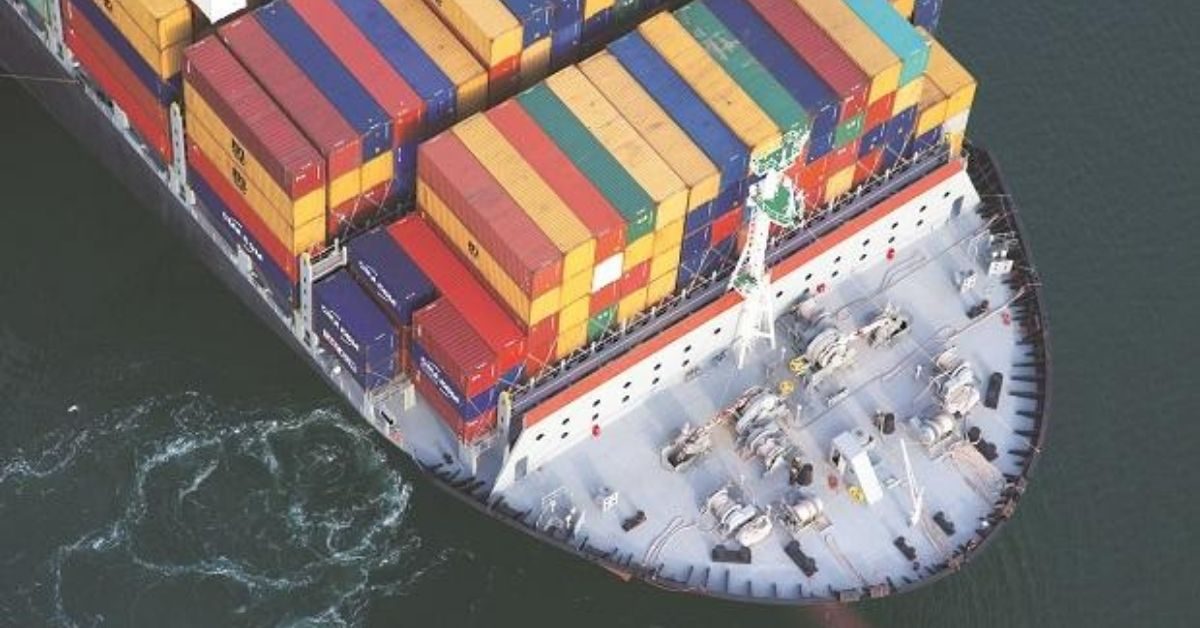The cost of shipping goods has again grown significantly as freight giants continue to avoid the key Red Sea route and unions expand protections for mariners.
Freight prices rose 80% in the past week, having already gone up nearly 50% the week before.
The most widely used measure of freight cost, the Shanghai Containerised Freight Index (SCFI), increased to $2,694 (£2,113) per container, up from $1,497 (£1,177) last Friday 22 December, according to data given to Sky News by global logistics company, DSV.
Not since 30 September 2022, 15 months ago, had the price been so high.
Higher shipping prices influence the sums being paid at checkouts and can have an inflationary impact, as most goods will spend at least some time at sea on their journey to consumers.
The Red Sea is a key supply artery which has been made increasingly dangerous as Yemen’s Houthi militants, in support of Palestine, have attacked boats they believe to be supplying and exporting from Israel.
Another cost factor at play is the major expansion of ships impacted by the warlike area designation made by unions and industry.
More protections were given to seafarers – and higher insurance bills resulted for operators – when the UK Warlike Operations Area Committee (WOAC) – made up of unions Nautilus International and the RMT, along with industry representative, the UK Chamber of Shipping – on Wednesday extended Red Sea recommendations.
Now, any boat that is owned by a company trading to Israel, or has called at a port in Israel since 21 June, or is scheduled to call at a port in Israel, or has any other established link to Israel, or has had at any time since 21 June 2023, has to pay mariners more for their work onboard and give them the right to refuse a Red Sea journey without being fired.
Previously, only ships with an owner or management connection to Israeli-owned companies came under the requirements.







